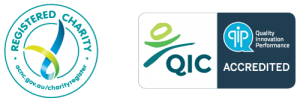
Sexual harassment, one of many disrespectful workplace behaviours, is devastating to employee wellbeing. And while there seems to be a movement in the community of more individuals speaking out about being sexually harassed or assaulted, many workplaces are still operating from a purely reactive standpoint. In fact, in the recent ACTU Sexual Harassment Survey, 43% of those who had made a complaint said they were ignored or not taken seriously. Once an allegation is made an investigation process is followed, but what are workplaces doing to create a respectful workplace and focus on preventing these instances of sexual harassment from occurring in the first place? As a leader or HR professional you might say “we have a psychologically safe workplace”, but that opinion comes from a position of power which can limit your view of what is actually occurring within an organisation and its culture. So, the question remains, how do you unearth the true state of psychological safety in your workplace and how do you begin to shift attitudes and biases (both conscious and unconscious) if your workplace is in fact toxic?
Consider your training programs.
There have been numerous studies that show ‘tick the box’ training that simply looks at what is considered disrespectful behaviour in the workplace, can in fact breed a culture where people double down on victim blaming, driving out what is often already small numbers of women in leadership positions. Instead, consider training that has proven more effective. These programs upskill people in bystander intervention. Learning outcomes should include things like how to confidently interject when a co-worker is making sexually inappropriate jokes or how to call out inappropriate behaviour if you see it. This begins to create a culture where it simply isn’t ‘cool’ to be disrespectful and sexually inappropriate jokes are met with deafening silence instead of laughter.
“Workplaces need to shift the lens through which they view sexual harassment. Instead of the traditional adversarial approach which often keeps the issue silenced and does not place employee wellbeing at the centre, it needs to be addressed as a psychosocial risk in the space of workplace health and safety.” Debra Brodowski, National Manager of Psychological Services, Centre for Corporate Health
Supportive leadership.
Culture is inevitably dictated by those in senior leadership positions, and again, if training or coaching for these senior leaders focuses on ‘forbidden behaviours’ and asking leaders to consider if their behaviour is inappropriate, it only proves to build defensiveness and self-preservation instead of self-awareness. Alternatively when looking for ways to build leadership capability in this space, it’s important that sexual harassment is placed as a collective challenge that needs to be addressed to improve the business by improving employee wellbeing. In this respect, leadership training should take a similar approach to bystander training. Facilitators should focus the training on upskilling leaders on how to recognize the early signs of harassment and how to intervene swiftly with, with employee wellbeing as their focus, to prevent escalation. Training on how to create psychologically safe teams is also an effective way to lay the foundations for a culture where toxic behaviour isn’t accepted.
An independent psychosocial safety audit.
If you suspect the culture of your organisation is toxic, engage an independent provider to conduct a psychosocial safety audit. If conducted in a truly independent nature, these audits can often unearth pockets of the organisation where disrespectful behaviour is going unseen. It can be an opportunity for employees to speak out about what is really going on without the fear of negative repercussions. From the audit, specific intervention services are recommended to begin shifting the culture from toxic to one of psychological safety.
These are just three key strategies to consider that will assist an organisation to begin viewing sexual harassment as a health and safety risk to their employees instead of simply a legal risk that needs to be dealt with swiftly and quietly. Contact us on 02 8243 1500 or at admin@cfch.com.au for our comprehensive framework on addressing sexual harassment as a psychosocial risk in the workplace.
Watch Centre for Corporate Health’s latest panel discussion on this very topic here.
Click here to complete the 10 minute complimentary Psychosocial Risk Pulse Check.
This article was supported by WayAhead as part of a series of guest articles from wellbeing experts, researchers and practitioners. Read more articles from the series here.
Rachel Clements
Director of Psychological Services
The Centre for Corporate Health


